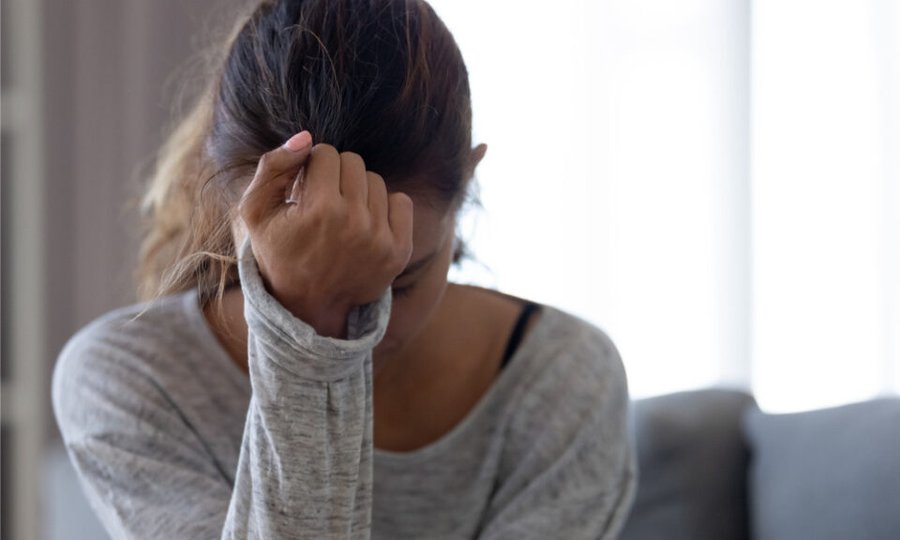Both physical and mental health is very important for any person. If a person is physically healthy but his mental health is poor then he will have to face many types of problems in his life. Mental health allows a person to realize their abilities, build confidence that they can cope with stress in life, and contribute to the development of their community through their work or actions. Mental disorders affect a person’s health-related behaviour, judgment, regular exercise, adequate sleep, safe sex practices, etc., and increase the risk of physical diseases. Due to mental illness, the person has to become unemployed, scattered family, poverty, drug abuse, and related crime. If a person’s mental health is right, then his life will also be right. That’s why we will tell you in detail about every aspect related to mental disorders in this section, which will help in improving your mental health. But let us first know, some important things related to mental health.
Causes of Mental Illness
Mental health includes our emotional, psychological, and social well-being. It affects how we think, feel and act. Your mental health changes with age. Over the course of your life, it’s important to be aware of, seek medical attention, and seek treatment if you experience mental health problems because they can affect your thinking, mood, and behaviour. There are many other factors that contribute to mental health problems, including:
- -Biological factors, such as genes or brain chemicals
- -Family history of mental health problems
- Life experiences, such as trauma or abuse
- Due to depression in life (Depressive Environment)
- Childhood trauma
- Stressful events of life due to the loss of a loved one
- Due to the increase in negative thoughts
- Due to unhealthy habits such as not getting enough sleep or bad eating habits (unhealthy lifestyle)
- Abusing drugs and alcohol
- Treatment with a chronic disease
Also check out: Taking Care of Your Mental Health During Difficult Times
Symptoms of Mental Illness
Each mental illness has its own symptoms. However, there are some common warning signs or symptoms that can alert you to someone who needs professional help.
- Overthinking
- Anxiety
- Marked personality change
- Changes in eating or sleeping patterns
- Problems and inability to cope with problems and daily activities
- excessive anxieties
- Prolonged depression and apathy
- excessive anger or violent behavior
- Thinking or talking about suicide
- Extreme mood swings
- Abuse of alcohol or drugs
Also check out: What is Mood Disorder? Know all about its Symptoms, Causes, Treatment.
Mental Health Disorders
Anxiety Disorders
Anxiety disorders are the most common type of mental illness. People with these conditions have severe fear or anxiety, which is related to certain objects or situations. There are also types of anxiety disorders, such as
a. Generalized anxiety disorder
Generalized anxiety disorder involves persistent and excessive worry that interferes with daily activities. This ongoing anxiety and tension may be accompanied by physical symptoms, such as restlessness, feeling on edge or easily exhausted, difficulty concentrating, muscle tension, or sleep problems
b. Panic Disorder
The main symptom of panic disorder is recurrent panic attacks, a tremendous combination of physical and psychological distress. It has many symptoms such as
- fast heartbeat
- to sweat
- vibrant trembling or shaking
- feeling short of breath
- Pain in chest
- dizziness, feeling light-headed or faint
- feeling of suffocation
- numbness or tingling
- chills
- Nausea or abdominal pain
- fear of dying
c. Phobias
A phobia is an excessive and persistent fear of a specific object, situation, or activity that is usually not harmful. Patients know that their fear is excessive, but they cannot overcome it.
d. Agoraphobia
Agoraphobia is the fear of being in situations where escape may be difficult or embarrassing. This fear makes the actual situation very disturbing and creates problems in functioning. A person suffering from agoraphobia experiences this fear in many situations. As if -using public transport when in open spaces, being in crowded places, standing in line, being alone outside the house.
e. Social Anxiety Disorder
A person with a social anxiety disorder has more worry and discomfort about being embarrassed, humiliated, rejected, or seen as lacking in social interactions. People with this disorder are highly afraid to learn, speak, meet new people and eat and drink in public in order to avoid the situation.
f. Separation Anxiety Disorder
People with separation anxiety disorder fear being separated from their people. Such people may refuse to leave the house or go out without that person or may experience nightmares about separation. These troubles develop in childhood, but symptoms can persist into adulthood.
Mood disorders
Mood disorders may also be referred to as affective disorders or depressive disorders. The mood of people with these conditions changes very quickly. There are also many types of this, such as
a. Major depression
A person with this depression is constantly low-filling and always in a bad mood and loses interest in activities and events that were previously enjoyed. He feels hopeless or extremely depressed for a long time.
b. Bipolar disorder.
A person with bipolar disorder experiences unusual changes in their mood, energy levels, activity levels, and ability to carry on with daily life. They become very energetic when they feel good, while they go into depression when they are in a low mood.
c. Seasonal affective disorder
During the winter and early spring months, when the days are shorter or darker, it can put some people into depression. The most important thing for such people is to live in a room with better lighting or sunlight.
Schizophrenia disorders
Schizophrenia is a group of one or more mental illnesses that are difficult to understand. Symptoms of schizophrenia usually develop between the ages of 16 and 30. The thoughts of such a person are at times broken and lost. These people also feel those things around them, which are not really there in the world. There are negative and positive symptoms of schizophrenia. Positive symptoms include delusions, thought disorders, and hallucinations. Negative symptoms include a lack of motivation and a bad mood.
Tips for improving mental health – Tips for good mental health
- Stay connected to others and don’t feel isolated.
- think positive
- Be physically active.
- Keep helping others.
- Get enough sleep and sleep on time and wake up on time
- Take a healthy diet, especially eat things that improve mood.
- Avoid alcohol, smoking and drugs.
- Get lots of sunlight.
- Don’t take too much stress.
- Stop thinking too much.
- Do exercise and yoga.
- Do something that makes you feel happy and makes you happy.
- Be friendly.
Also check out: Schizophrenia – Myths and Facts




